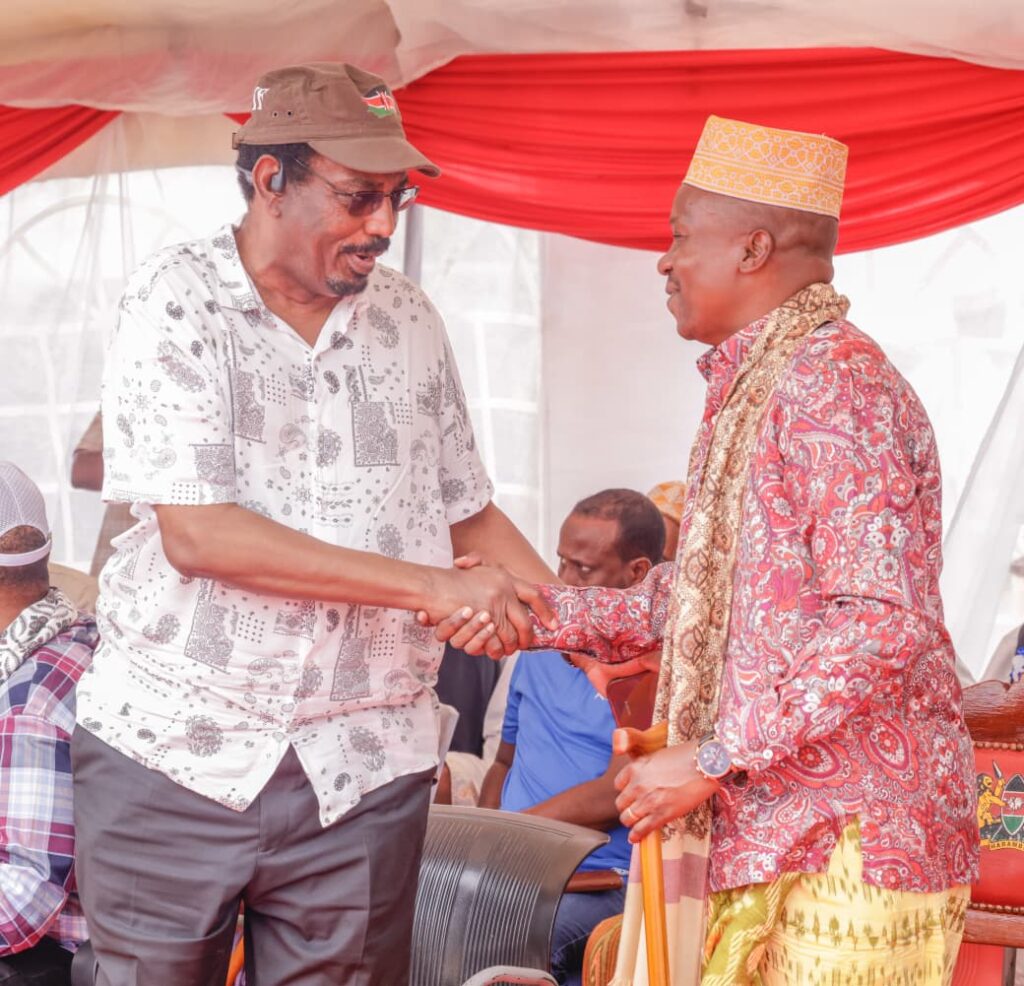Deputy President Kithure Kindiki on Sunday led an economic empowerment drive in Tarbaj Constituency, Wajir County, reaffirming the government’s commitment to accelerating socio-economic transformation in North Eastern Kenya.
The initiative, which targeted micro and small-scale traders, is part of the Kenya Kwanza administration’s broader plan to uplift grassroots entrepreneurs and expand opportunities for local communities. Kindiki emphasized that the government is channeling resources into key infrastructure projects such as road construction, modern market facilities, and electricity connectivity—pillars he described as essential for economic growth and poverty alleviation.
“The people of North Eastern Kenya deserve equal opportunities to thrive. By investing in infrastructure, markets, and power, we are creating an environment where businesses can grow and families can prosper,” the Deputy President said.
The campaign brought together top national and local leaders in a show of unity and commitment to the region’s development. Among those present were National Assembly Speaker Moses Wetang’ula, Majority Leader Kimani Ichung’wah, and Wajir Governor Ahmed Abdullahi. Several Members of Parliament from Wajir, Mandera, and Garissa counties also attended, including Senator Abass Sheikh Mohamed, Wajir County MP Fatuma Abdi Jehow, Dadaab MP Farah Maalim, Lafey MP Abdirahman Mohammed Abdi, Eldas MP Adan Keynan, Tarbaj MP Abdi Hussein Barre, Nominated MP Suleka Harun (Mandera), and Mandera County MP Sheikh Umulkher Kassim.
Their presence underscored the significance of the empowerment campaign, which aligns with the administration’s Bottom-Up Economic Transformation Agenda (BETA). The leaders reiterated their support for government programs aimed at unlocking the region’s economic potential, which has long been constrained by inadequate infrastructure and limited access to resources.
Governor Abdullahi welcomed the initiative, noting that improved roads, electricity, and modern market spaces will not only boost trade but also improve livelihoods. “Our traders are resilient. With the right support, they can transform the economy of this region,” he said.
The Tarbaj empowerment campaign marks another step in the government’s efforts to bridge regional inequalities and ensure that marginalized areas benefit from national development priorities.

